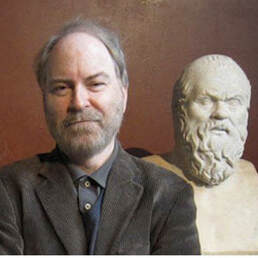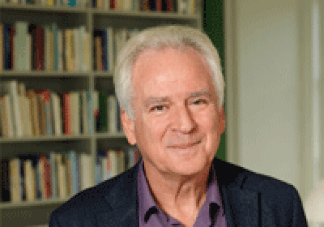Keynote Speakers
Professor Adriana Sampaio
Adriana Sampaio holds a degree and a PhD in Psychology from the University of Minho in 2006. She studied Medicine at the Institute of Biomedical Sciences Abel Salazar – University of Porto. Her PhD research contributed for advancing in the knowledge of neurodevelopmental disorder – Williams Syndrome, performing neurocognitive and structural studies, using magnetic resonance imaging.
She is an Assistant Professor with Aggregation at the Department of Basic Psychology at the School of Psychology at the University of Minho. Currently, his research work focuses on the study of neurodevelopmental processes, more specifically on the study of the influence of genetics, brain (structure and functioning) and environment on the various cognitive and emotional processes that occur throughout development.
As part of her work, Adriana Sampaio has published several articles in international journals, collaborating with several research teams (Spain, France, United Kingdom, Brazil and USA). She is director of the Laboratory of Neuropsychophysiology and has been principal investigator of several projects funded by FCT and Fundação Bial and has been awarded for her work in the area of research in Psychology.
You can find her books and publications here.

Professor Shaun Gallagher
Shaun Gallagher is the Lillian and Morrie Moss Chair of Excellence in Philosophy at the University of Memphis (2011- ). He holds a secondary appointment as Professorial Fellow at SOLA, University of Wollongong (Australia). He was the recipient of the Humboldt Foundation's first Anneliese Maier Research Award (2012-2018) and he received an honorary Doctorate from the University of Copenhagen in 2021.
He was Honorary Professor of Philosophy at the University of Copenhagen (2010-15), Honorary Professor of Philosophy at the University of Durham (UK) (2013-16), and Honorary Professor of Health Sciences at the University of Tromsø, Norway (2013-19). He has held visiting positions at the Medical Research Council's Cognitive and Brain Science Unit at Cambridge University, the Danish National Research Foundation Center for Subjectivity Research at the University of Copenhagen, the Ecole Normale Supériure in Lyon, the Centre de Recherche en Epistémelogie Appliquée (CREA), Paris, Die Kolleg-Forschergruppe Bildakt und Verkörperung, Humboldt University in Berlin, Keble College, University of Oxford (2016), and the University of Rome.
He is also a founding editor, and continues as a co-editor-in-chief of Phenomenology and the Cognitive Sciences, an interdisciplinary journal published by Springer (Google Metrics). His research interests include phenomenology and the philosophy of mind, philosophical psychology, embodiment, intersubjectivity, hermeneutics, and the philosophy of time.
You can find his books and publications here.

Professor Karl Friston
Karl Friston is a theoretical neuroscientist and authority on brain imaging. He invented statistical parametric mapping (SPM), voxel-based morphometry (VBM) and dynamic causal modelling (DCM). These contributions were motivated by schizophrenia research and theoretical studies of value-learning, formulated as the dysconnection hypothesis of schizophrenia. Mathematical contributions include variational Laplacian procedures and generalized filtering for hierarchical Bayesian model inversion. Friston currently works on models of functional integration in the human brain and the principles that underlie neuronal interactions. His main contribution to theoretical neurobiology is a free-energy principle for action and perception (active inference).
Friston received the first Young Investigators Award in Human Brain Mapping (1996) and was elected a Fellow of the Academy of Medical Sciences (1999). In 2000 he was President of the international Organization of Human Brain Mapping. In 2003 he was awarded the Minerva Golden Brain Award and was elected a Fellow of the Royal Society in 2006. In 2008 he received a Medal, College de France and an Honorary Doctorate from the University of York in 2011.
He became of Fellow of the Royal Society of Biology in 2012, received the Weldon Memorial prize and Medal in 2013 for contributions to mathematical biology and was elected as a member of EMBO (excellence in the life sciences) in 2014 and the Academia Europaea in (2015). He was the 2016 recipient of the Charles Branch Award for unparalleled breakthroughs in Brain Research and the Glass Brain Award - a lifetime achievement award in the field of human brain mapping. He holds Honorary Doctorates from the University of Zurich and Radboud University.
You can find his books and publications here.

Professor Peter Gärdenfors
Peter Gärdenfors received his Ph.D. in Philosophy from Lund University. He taught philosophy of science, logic and epistemology at the Department of Philosophy, Lund University, before becoming full Professor of Cognitive Science in 1988. He is currently a Senior Professor and Professor Emeritus of the Lund University. He was managing editor of Theoria from 1978 to 1986 and of the Journal of Logic, Language and Information from 1992 to 1995. Gärdenfors’ current research interests include decision theory, concept formation, cognitive semantics and the evolution of cognition.
Currently, Gärdenfors is extending his work on concept formation and the evolution of thinking to models of learning processes and cognitively based theories of semantics and communication. He is also one of the initiators of a ten-year interdisciplinary Linnaeus project at Lund University on cognition, communication and learning.
Gärdenfors is a member of the Royal Swedish Academy of Letters, History and Antiquities; the Royal Swedish Academy of Sciences; the Deutsche Akademie der Naturforscher Leopoldina; and Academia Europaea. Member of the Royal Swedish Academy of Science since 2009. Member of the Prize Committee for the Prize in Economic Sciences in Memory of Alfred Nobel 2011-2017. Fellow of the Cognitive Science Society since 2016. Member of the Royal Swedish Academy of Engineering Sciences since 2018. He was awarded with several international prizes, such as the Swenson Prize for Research in Humanities and Social Sciences in 2021.
You can find his books and publications here.

Professor Dirk Geeraerts
Dirk Geeraerts is Professor Emeritus of linguistics at the University of Leuven. He studied Germanic languages (Dutch and English), and also holds a bachelor's degree in Philosophy. He received his PhD from the University of Leuven in 1981. He worked at the Instituut voor Nederlandse Lexicologie in Leiden (The Netherlands) and the University of Leuven from 1986 to 1993. Since 1993 he taught theoretical linguistics in Leuven, where he founded the research group Quantitative Lexicology and Variational Linguistics at the turn of the millennium. He retired in October 2021.
In terms of research domains, Dirk Geeraerts' main focus involves the fields of lexical semantics and lexicology. Specific attention goes to social variation and diachronic change of meaning and vocabulary, to the interaction between semasiological and onomasiological phenomena, and to empirical methods for semantic description. His theoretical orientation is mainly that of cognitive and usage-based linguistics, with a special emphasis on cognitive sociolinguistics, and on the position of Cognitive Linguistics in the history of contemporary linguistics.
As the founder of the journal Cognitive Linguistics, he played an important role in the international expansion of Cognitive Linguistics. He is the editor, with Hubert Cuyckens, of The Oxford Handbook of Cognitive Linguistics. Since 2005, he is managing editor of Mouton de Gruyter's Cognitive Linguistics Research series.
You can find his books and publications here.

